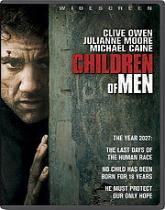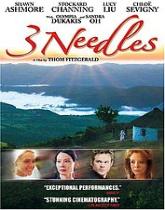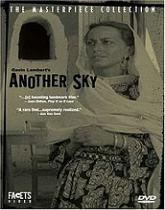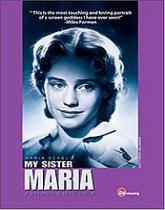
Knight at HOME at the Movies
Serious Themed Dramas
I'm not kidding around -- these four DVD recommendations cover some pretty intense, dramatic and thought provoking ground. All
excellent, must haves, naturally.
I'm not kidding around -- these four DVD recommendations cover some pretty intense, dramatic and thought provoking ground. All
excellent, must haves, naturally.
The late gay writer Gavin Lambert began his career writing film criticism and later wrote the
screenplays for I Never Promised You a Rose Garden, The Roman Spring of Mrs. Stone, and
Inside Daisy Clover among others. The latter was based on his own novel about a
teenager’s abrupt coming of age within the Hollywood studio system back in the 1930s, a
period that obsessed Lambert. Aside from novels, Lambert wrote telling, definitive
biographies of closeted gay director George Cukor, Norma Shearer, and close friend
Natalie Wood among others. Lambert was a close friend of other gay writers of his period
like Tennessee Williams, Paul Bowles, and Truman Capote.
In the mid 1950s after visiting Bowles in Morocco Lambert also wrote and directed his only
film, the little known Another Sky. A prim former English nanny, spinster Rose Graham
(Victoria Grayson who resembles Gina Gershon and made only one other film) travels to
Marrakesh to take a job as a paid companion for the middle aged sophisticate Selena
Prouse and finds herself falling in love with her adopted country and a local street
musician. When the musician disappears, Rose becomes obsessed with seeing him one
more time and embarks on a journey deep into the barren country to find him. The film
utilizes little dialogue, is filled with powerful moments (the strange look on Rose’s face –
a mixture of remembered pleasure and terror – as she leaves her lover after they’ve
made love and wanders in a blur amidst the marketplace is unforgettable).
There are reminders of Black Narcissus, Summertime, and not surprisingly, The Sheltering
Sky in the story but Lambert’s talent for the medium is evident and, like Charles
Laughton, makes one wonder why he never again directed a film (perhaps because the
movie apparently didn’t make much of an impression on filmgoers in its first and only
run). Now this long forgotten cinematic artifact has been digitally restored and is available
from Facets Video. The disc includes an overview of Lambert’s career (he died in 2005)
and a short feature on the movie’s restoration.
I thought gay writer-director Thom Fitzgerald’s 3 Needles was nothing short of a triumph
when I first screened it and another viewing on the DVD edition (out from Wolfe Video)
has confirmed that for me. I’m also taken on this third go at this difficult, quietly
insistent movie with the unusual approach that Fitzgerald takes. Given his easy to
dramatize subject matter, Fitzgerald resists the temptation to sensationalize and so
careful is his approach; so unjudgmental is it that he may throw off viewers with his
offbeat approach. The movie follows three separate stories that quietly illustrate the
breadth of the AIDS pandemic. It’s enacted by a name cast that brings much to
Fitzgerald’s stories of the emotional and physical devastation that the disease has
wreaked worldwide. The disc includes cast interviews, a few deleted scenes, and two
documentaries that focus more closely on the scourge that is AIDS. Highly recommended.
Writer-director Alfonso Cuarón added to his increasingly interesting film resume during the
2006 holiday season with Children of Men. The movie, a nightmare vision of the
future set in England in 2027, in which humans can no longer procreate, follows Clive
Owen through a bleak and terrorist torn England as he tries to help the world’s first
pregnant woman in 18 years escape to a possible sanctuary. Owen begins his journey at
the behest of his former lover (Julianne Moore), the leader of a terrorist group. Michael
Caine as an aging hippie hiding out in the country while smoking pot and playing Pink
Floyd adds much needed zest to the movie and Kinky Boots’ Chiwetel Ejiofor and others
offer nice support.
Though the film received rave reviews (and did garner three Oscar nominations) it wasn’t
a big audience pleaser. Perhaps its subject matter hit just a bit too close to home with its
bleak look at a world in which terrorists and a brutal, conservative government both vie for
power – a world that the director perfectly (and depressingly) realizes (kudos to the art
department and cinematographer). Or maybe holiday audiences simply wanted lighter
fare. Whatever the reason, the movie’s release on DVD (from Universal Studios) is sure
to bring Children of Men the large audience it deserves. It’s a fascinating, well acted story
in the mold of 1984 and The Handmaid’s Tale (another film worth having another look at).
The disc includes a few deletes scenes, several featurettes, including one that details the
film crews’ imaginative work on the movie’s central action set piece, a look at the
characters played by Owen and Moore, and a really interesting curio – a featurette titled
“The Possibility of Hope” that’s the equivalent of a think tank in which a group of futurists
predict different future scenarios for the world. A really thoughtful and apt piece to include.
Actor Maximilian Schell made one of cinema’s most inventive and emotive documentaries
with Marlene, his 1986 portrait of Dietrich. When Schell and his crew arrived at her
apartment in Paris to begin shooting the famous diva refused to be photographed –
though she would allow her voice to be recorded. Schell proceeded to use this limitation
to his advantage and the resulting film in which we see a woman who once commanded
the world stage reduced to the small, artfully cluttered rooms of her apartment was
unforgettable. Now Schell has pulled the rabbit out of the hat once again with the elliptical
My Sister Maria. If anything, this trumps the Dietrich piece as unlike his portrait of the
fierce and still protective diva, Schell has in his sister a subject who is trusting and
emotionally naked; ready to give her all for the camera; unafraid of its gaze.
Confused and suffering from a slowly encroaching brain malady, broke and utterly
dependent on her brother and family, Maria Schell, once hailed as one of cinema’s
greatest actresses, gives perhaps her greatest performance – as herself. This is because
her brother has not only photographed his sister, who has retreated to the family farm
and attendant buildings in Germany, and her caretakers, but for dramatic purposes he
recreates the catastrophic health and financial crises that were occurring during the
making of the film. Though it’s not always clear which is which, the blurring doesn’t
matter in this case. Schell’s instincts are on target and the final film, a combination of
both recreations and in the moment footage, as well as a healthy dose of clips that
provide testament to Schell’s amazing, intuitive talent. It’s a thrilling, loving and somber
portrait. There are moments in the film that are exquisitely photographed – the family
sitting by candlelight as Maria encourages Maxil to play the piano, Maria and Maxil slowly
walking between the guest house and the family manse, Maria watching herself on the
large television screens as she lays in bed. A more heartfelt of a brother’s love for a
sister that lived for love – at what we see has been a great emotional cost to herself – is
breathtaking to behold. My Sister Maria is one of those movies that had me saying
repeatedly as I watched it, “This is amazing, this is amazing, this is amazing.” The disc
(from TLA Releasing) includes the film’s trailer. For the patient, this is an extremely
rewarding film experience.
screenplays for I Never Promised You a Rose Garden, The Roman Spring of Mrs. Stone, and
Inside Daisy Clover among others. The latter was based on his own novel about a
teenager’s abrupt coming of age within the Hollywood studio system back in the 1930s, a
period that obsessed Lambert. Aside from novels, Lambert wrote telling, definitive
biographies of closeted gay director George Cukor, Norma Shearer, and close friend
Natalie Wood among others. Lambert was a close friend of other gay writers of his period
like Tennessee Williams, Paul Bowles, and Truman Capote.
In the mid 1950s after visiting Bowles in Morocco Lambert also wrote and directed his only
film, the little known Another Sky. A prim former English nanny, spinster Rose Graham
(Victoria Grayson who resembles Gina Gershon and made only one other film) travels to
Marrakesh to take a job as a paid companion for the middle aged sophisticate Selena
Prouse and finds herself falling in love with her adopted country and a local street
musician. When the musician disappears, Rose becomes obsessed with seeing him one
more time and embarks on a journey deep into the barren country to find him. The film
utilizes little dialogue, is filled with powerful moments (the strange look on Rose’s face –
a mixture of remembered pleasure and terror – as she leaves her lover after they’ve
made love and wanders in a blur amidst the marketplace is unforgettable).
There are reminders of Black Narcissus, Summertime, and not surprisingly, The Sheltering
Sky in the story but Lambert’s talent for the medium is evident and, like Charles
Laughton, makes one wonder why he never again directed a film (perhaps because the
movie apparently didn’t make much of an impression on filmgoers in its first and only
run). Now this long forgotten cinematic artifact has been digitally restored and is available
from Facets Video. The disc includes an overview of Lambert’s career (he died in 2005)
and a short feature on the movie’s restoration.
I thought gay writer-director Thom Fitzgerald’s 3 Needles was nothing short of a triumph
when I first screened it and another viewing on the DVD edition (out from Wolfe Video)
has confirmed that for me. I’m also taken on this third go at this difficult, quietly
insistent movie with the unusual approach that Fitzgerald takes. Given his easy to
dramatize subject matter, Fitzgerald resists the temptation to sensationalize and so
careful is his approach; so unjudgmental is it that he may throw off viewers with his
offbeat approach. The movie follows three separate stories that quietly illustrate the
breadth of the AIDS pandemic. It’s enacted by a name cast that brings much to
Fitzgerald’s stories of the emotional and physical devastation that the disease has
wreaked worldwide. The disc includes cast interviews, a few deleted scenes, and two
documentaries that focus more closely on the scourge that is AIDS. Highly recommended.
Writer-director Alfonso Cuarón added to his increasingly interesting film resume during the
2006 holiday season with Children of Men. The movie, a nightmare vision of the
future set in England in 2027, in which humans can no longer procreate, follows Clive
Owen through a bleak and terrorist torn England as he tries to help the world’s first
pregnant woman in 18 years escape to a possible sanctuary. Owen begins his journey at
the behest of his former lover (Julianne Moore), the leader of a terrorist group. Michael
Caine as an aging hippie hiding out in the country while smoking pot and playing Pink
Floyd adds much needed zest to the movie and Kinky Boots’ Chiwetel Ejiofor and others
offer nice support.
Though the film received rave reviews (and did garner three Oscar nominations) it wasn’t
a big audience pleaser. Perhaps its subject matter hit just a bit too close to home with its
bleak look at a world in which terrorists and a brutal, conservative government both vie for
power – a world that the director perfectly (and depressingly) realizes (kudos to the art
department and cinematographer). Or maybe holiday audiences simply wanted lighter
fare. Whatever the reason, the movie’s release on DVD (from Universal Studios) is sure
to bring Children of Men the large audience it deserves. It’s a fascinating, well acted story
in the mold of 1984 and The Handmaid’s Tale (another film worth having another look at).
The disc includes a few deletes scenes, several featurettes, including one that details the
film crews’ imaginative work on the movie’s central action set piece, a look at the
characters played by Owen and Moore, and a really interesting curio – a featurette titled
“The Possibility of Hope” that’s the equivalent of a think tank in which a group of futurists
predict different future scenarios for the world. A really thoughtful and apt piece to include.
Actor Maximilian Schell made one of cinema’s most inventive and emotive documentaries
with Marlene, his 1986 portrait of Dietrich. When Schell and his crew arrived at her
apartment in Paris to begin shooting the famous diva refused to be photographed –
though she would allow her voice to be recorded. Schell proceeded to use this limitation
to his advantage and the resulting film in which we see a woman who once commanded
the world stage reduced to the small, artfully cluttered rooms of her apartment was
unforgettable. Now Schell has pulled the rabbit out of the hat once again with the elliptical
My Sister Maria. If anything, this trumps the Dietrich piece as unlike his portrait of the
fierce and still protective diva, Schell has in his sister a subject who is trusting and
emotionally naked; ready to give her all for the camera; unafraid of its gaze.
Confused and suffering from a slowly encroaching brain malady, broke and utterly
dependent on her brother and family, Maria Schell, once hailed as one of cinema’s
greatest actresses, gives perhaps her greatest performance – as herself. This is because
her brother has not only photographed his sister, who has retreated to the family farm
and attendant buildings in Germany, and her caretakers, but for dramatic purposes he
recreates the catastrophic health and financial crises that were occurring during the
making of the film. Though it’s not always clear which is which, the blurring doesn’t
matter in this case. Schell’s instincts are on target and the final film, a combination of
both recreations and in the moment footage, as well as a healthy dose of clips that
provide testament to Schell’s amazing, intuitive talent. It’s a thrilling, loving and somber
portrait. There are moments in the film that are exquisitely photographed – the family
sitting by candlelight as Maria encourages Maxil to play the piano, Maria and Maxil slowly
walking between the guest house and the family manse, Maria watching herself on the
large television screens as she lays in bed. A more heartfelt of a brother’s love for a
sister that lived for love – at what we see has been a great emotional cost to herself – is
breathtaking to behold. My Sister Maria is one of those movies that had me saying
repeatedly as I watched it, “This is amazing, this is amazing, this is amazing.” The disc
(from TLA Releasing) includes the film’s trailer. For the patient, this is an extremely
rewarding film experience.




